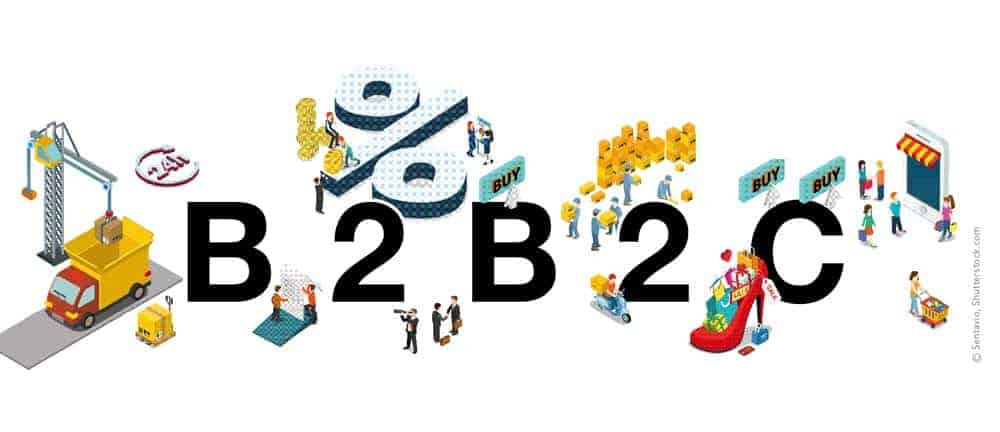Change in retail: business models must be adapted


After 20 years of e-commerce, system providers and retailers in digitally supported commerce are facing new challenges. While in recent years it was still a matter of making an online store mobile, personalizing it or integrating stationary stores through online reservations or click & collect, buying behavior is changing fundamentally.
For example, we are experiencing the transition from screens to conversational interfaces. Today, you can already do your shopping using speech, gestures or touch.
Controlled by real/virtual interfaces, the product search becomes a conversation with the bot, which then interacts with one or more online stores.
AI changes shopping behavior
Although traditional online stores served by users will not disappear in digitally supported commerce, their importance will diminish. Bots such as Watson, Alexa, Siri, Google Home, ChatShopper or IoT devices in combination with AI, VR, AR and stores equipped with sensors and machine learning such as Amazon Go or smart home systems are changing shopping behavior.
In the future, digitally supported commerce will merge even more closely with the real world. Shopping will increasingly be based on natural human behavior such as movement and speech, as well as artificial intelligence.
Traditional cash registers become obsolete
The example of the stationary Amazon Go store makes the classic checkout redundant, among other things. It shows how stationary shopping without standing in line can be realized according to the simple "grab and go" principle.
Sensors and cameras capture the behavior and are linked with Machine Learning algorithms. Cameras and radar systems capture the motion sequences and recognize the behaviors through machine learning.
They automatically reconcile the real and digital shopping carts in real time. All purchase-relevant processes take place in the background and must be supported accordingly by the system.
These developments require a rethink and place new demands on those involved. System providers in particular must adapt to the change in purchasing behavior and adjust their products in terms of efficiency, functionality, data management, internal system processes, etc.
Many standard store systems are not prepared for these fundamental changes. Retailers must therefore pay close attention to the choice of store systems and their IT partners.
Independence from users and devices
In the future, only store systems that are flexible, user- and device-independent, and have a microservice architecture as well as real-time processing of large amounts of data will survive. The openness of the systems to the outside world and the associated security requirements are enormously important.
Machine learning must also increase data quality. Future PIM systems or product data services must be able to interact with semantic applications such as bots via corresponding semantic database layers.
In addition to a flexible and open basic architecture, forward-thinking consulting partners are essential. They must bring holistic approaches, know the industries and their development well in order to lead such innovative projects to success.






